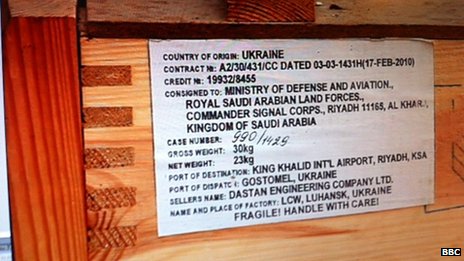For several months now it has been known that the US is cooperating with its allies in Turkey, Saudi Arabia, and Qatar to provide aid and weapons to the rebel fighters in Syria. While the US has sent “non-lethal” aid to the rebels – like money, communications gear, and intelligence – it was also sent the CIA to the Turkish-Syrian border to funnel weapons coming primarily from Saudi Arabia and Qatar to various rebels. In recent weeks, the Obama administration has redoubled these efforts, sending more spies to help organize the Syrian rebels and tens of millions more in aid.
As this has been happening, officials in Washington have expressed trepidation about sending weapons, given the fact that the rebels have committed war crimes and are increasingly fighting under the banner of al-Qaeda. Last week, the New York Times reported that these concerns prompted Saudi Arabia and Qatar to start to limit the weapons being provided to the rebels: “…they have been discouraged by the United States, which fears the heavier weapons could end up in the hands of terrorists.”
To some, it wasn’t clear whether the US and its clients in the Gulf were avidly committed to actually using the Syrian rebels as proxies to overthrow the Assad regime, or whether it was more of a PR campaign to show they were “doing something.”
Now up at the BBC, there is clear evidence that Saudi weapons are in fact making it to the rebels: “Three crates from an arms manufacturer – addressed to Saudi Arabia – have been seen in a base being used by rebel fighters in the city of Aleppo.” One BBC reporter on the ground in Aleppo snapped this photograph:
What was in the crates is unknown, says the BBC’s Ian Pannell, who has been in Aleppo, as is how they ended up there.
But their presence clearly suggests that someone in the Gulf is actively helping the rebels fighting to overthrow President Bashar al-Assad, our correspondent says.
…Privately, opposition sources have confirmed to the BBC that they are receiving assistance from Saudi Arabia and Qatar.
The report from the Times that weapons to the rebels were somehow being limited suggests that its possible to be a little bit pregnant. The rebels are either receiving arms or they are not. The question of how much or what kind is immaterial to the moral and strategic implications of such a policy.
The United Nations has consistently objected to this “covert” arming of the rebels, saying it is not only wrong (because of who the rebels are and what they have done), but also that it is counterproductive in that it is fueling added violence. In July, UN rights chief Navi Pillay said “The ongoing provision of arms to the Syrian government and to its opponents feeds additional violence,” she said in the text of remarks made to the Security Council. “Any further militarization of the conflict must be avoided at all costs.” UN Secretary General Ban Ki-moon just reiterated this again, saying he was “deeply concerned” by the continued flow of arms to both sides, despite international embargoes. “I urge again those countries providing arms to stop doing so. Militarization only aggravates the situation,” he added.

